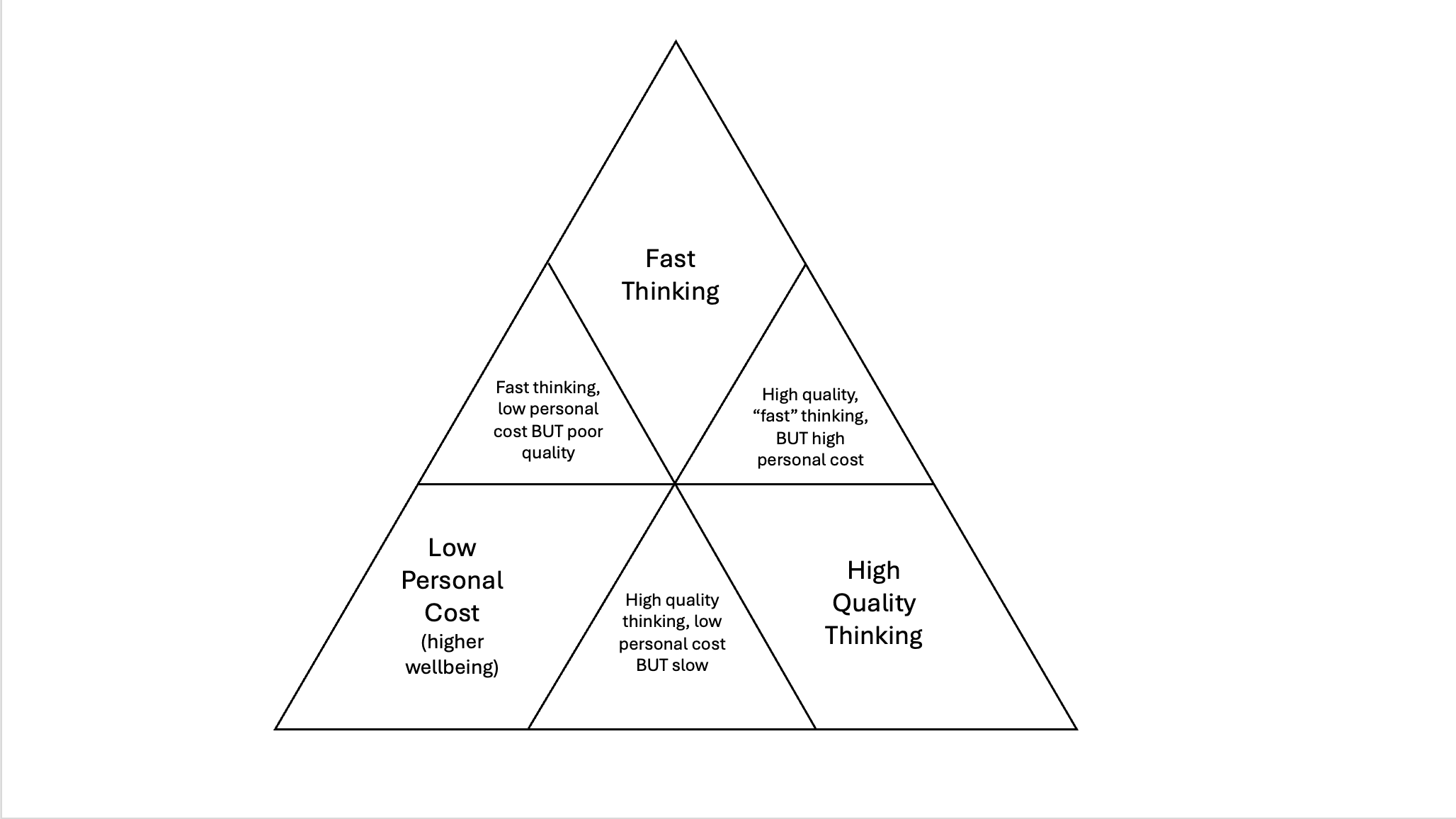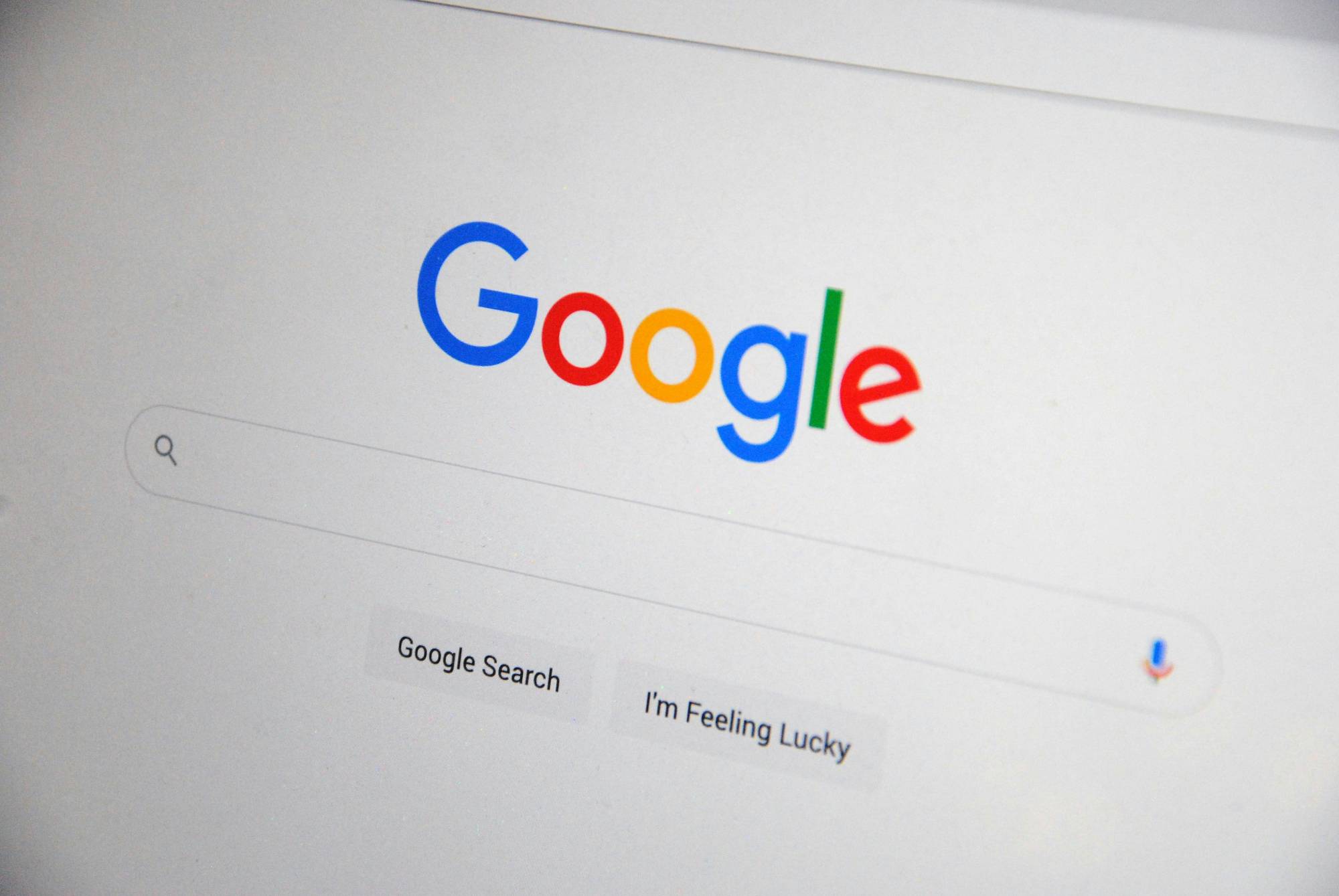Encouraging deeper thinking in the workplace
Debbie Perry, Partner at IMA's consulting arm, Fusion, reflects on the importance of deep thinking...
Author
Deborah Perry
Date
25.07.2024

Encouraging deeper thinking in the workplace
Often referred to as the Iron triangle, all businesses recognise the need to balance quality, speed and cost, and that in reality you must prioritise two out of the three elements because to have all three is unobtainable.
This model could easily apply to thinking too, where cost is defined as the impact on an individual’s wellbeing i.e. the lower the cost, the higher the wellbeing.

My experience would suggest that businesses tend to prioritise speed of thought over quality of thought. Or, they inadvertently prioritise quality and speed of thought over personal wellbeing.
The latter can be misleading because, individuals aren’t usually thinking any faster to come up with brilliant ideas, solutions or initiatives, but are instead burning the midnight oil to fit more thinking into the working day (and night), giving the false impression of a quick turnaround.
And of course, few businesses have time for anything that is ‘slow’.
I’m not saying there is anything wrong with ‘quick thinking’. It uses less energy, which makes it a very attractive mode of thinking. But it’s reliance on heuristics, tends to result in shorter term, reactive and predictable outcomes and perhaps more mistakes, which in turn need more energy and effort to correct.
In addition, although quick thinking uses less energy compared to slow thinking, you don’t travel very far either. I equate it to cycling in a very low gear on the flat.
Slow thinking on the other hand, needs much more of a push at the start to get your brain into the higher gears, but once you have built enough thought momentum, channels seem to open in the brain, and you can cover a lot of ground in a relatively short time. Then the thinking is in fact very fast in terms of the mental landscape (un)covered. I personally find this is a more rewarding experience, which then has a positive uplift on my wellbeing, supporting an upward spiral of thinking quality.
In the end, I believe high quality, slow thinking from people in states of high wellbeing, is what will really move the dial in terms of productivity, vision, creativity and ingenuity.
So, what needs to be true to have more deep thinking in the workplace?
It means less...
- Switching tasks – fewer, bigger things
- Distractions – less engagement with social media. Better notification management
- Interruptions – minimise unscheduled communication
- Cognitive load – reduce mental clutter
It means more...
- Focused time – assign bigger chunks of time to a challenge
- Autonomy - more searching on the “inner-net”. More control over your time/energy
- Desire to go deeper – increased curiosity and complex questioning
- Encouragement – feel rewarded for quality over quantity where appropriate
Somebody once told me that they had seen a note on a menu that read “we don’t serve fast food, we serve good food as fast as we can”. For some reason, that phrase stuck with me. I admired the quietly confident stance it was making against the insatiable desire for ‘instant’.
So now I proudly say, “I don’t do fast thinking, I do deep thinking, as fast as I can”.
I’d encourage everyone to slow down their brainwaves to ultimately think faster, because as the old adage goes, “all good things come to those who wait”.
